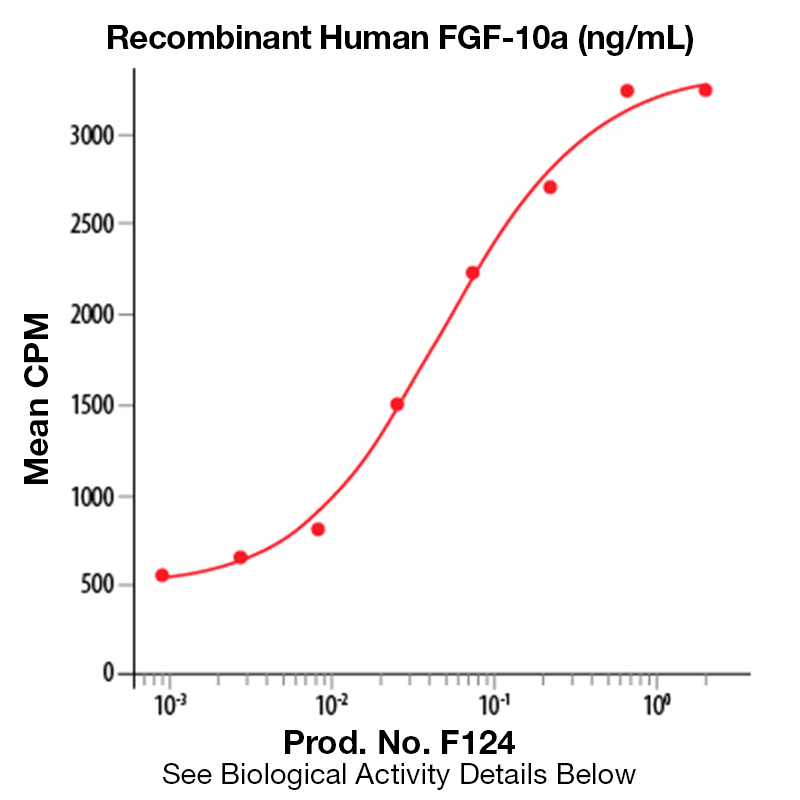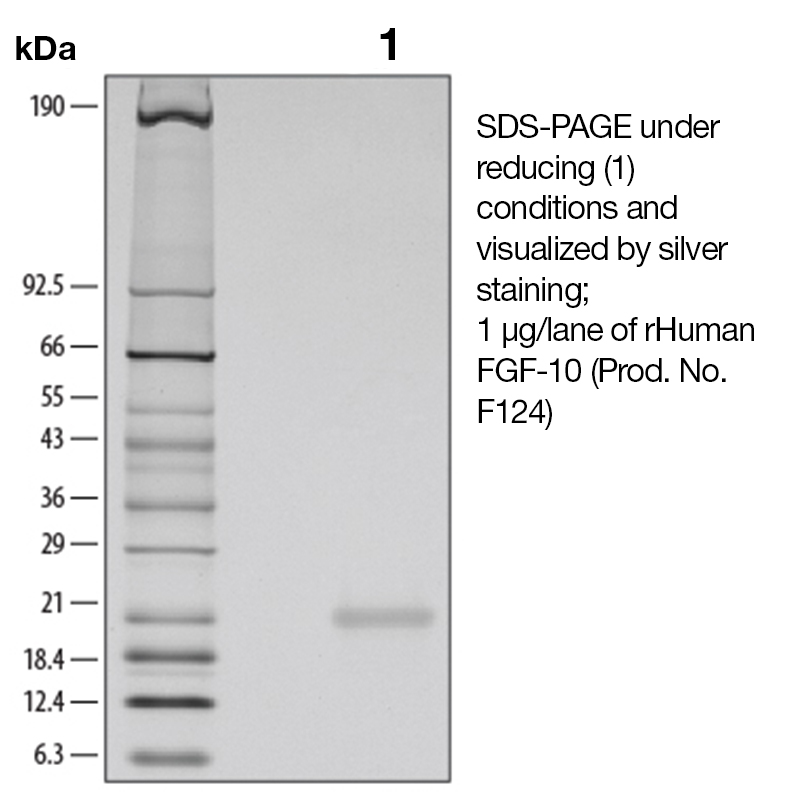Recombinant Human FGF-10
Data
- -
- -
BackgroundFibroblast growth factor 10, also known as FGF10, is a member of the fibroblast growth factor (FGF) family. FGF family members possess broad mitogenic and cell survival activities, and are involved in a variety of biological processes, including embryonic development, cell growth, morphogenesis, tissue repair, tumor growth and invasion. This protein exhibits mitogenic activity for keratinizing epidermal cells, but essentially no activity for fibroblasts, which is similar to the biological activity of FGF7. FGF10 is a primary factor in the process of wound healing similarly to other growth factors such as TGF alpha and FGF7.1 Protein DetailsPurity >97% by SDS-PAGE and analyzed by silver stain. Endotoxin Level <0.1 EU/µg as determined by the LAL method Biological Activity The biological activity of Human FGF-10 was determined by its ability to stimulate the proliferation of a monkey epithelial cell line, 4MBr-5 (Rubin, J.S. et al., 1989, Proc. Natl. Acad. Sci. USA 86:802). The expected ED<sub>50</sub> for this effect is typically 100 - 300 ng/ml. Protein Accession No. Amino Acid Sequence cqal gqdmvspeat nsssssfssp ssagrhvrsy nhlqgdvrwr klfsftkyfl kiekngkvsg tkkencpysi leitsveigv vavkainsny ylamnkkgkl ygskefnndc klkerieeng yntyasfnwq hngrqmyval ngkgaprrgq ktrrkntsah flpmvvhs
N-terminal Sequence Analysis Cys37 & Gly41 State of Matter Lyophilized Predicted Molecular Mass The predicted molecular weight of Recombinant Human FGF-10 is Mr 19.5 kDa. However, the actual molecular weight as observed by migration on SDS-PAGE is Mr 19-22 kDa (reducing conditions). Predicted Molecular Mass 19.5 Storage and Stability This lyophilized protein is stable for six to twelve months when stored desiccated at -20°C to -70°C. After aseptic reconstitution, this protein may be stored at 2°C to 8°C for one month or at -20°C to -70°C in a manual defrost freezer. Avoid Repeated Freeze Thaw Cycles. See Product Insert for exact lot specific storage instructions. Country of Origin USA Shipping Next Day Ambient NCBI Gene Bank References & Citations1. Nakatsuka, M. et al. (1997) Gene197: 399 Certificate of AnalysisIMPORTANT Use lot specific datasheet for all technical information pertaining to this recombinant protein. |
Related Products
- -
- -
Prod No. | Description |
|---|---|
F151 | |
F124 | |
F152 |
 Products are for research use only. Not for use in diagnostic or therapeutic procedures.
Products are for research use only. Not for use in diagnostic or therapeutic procedures.




